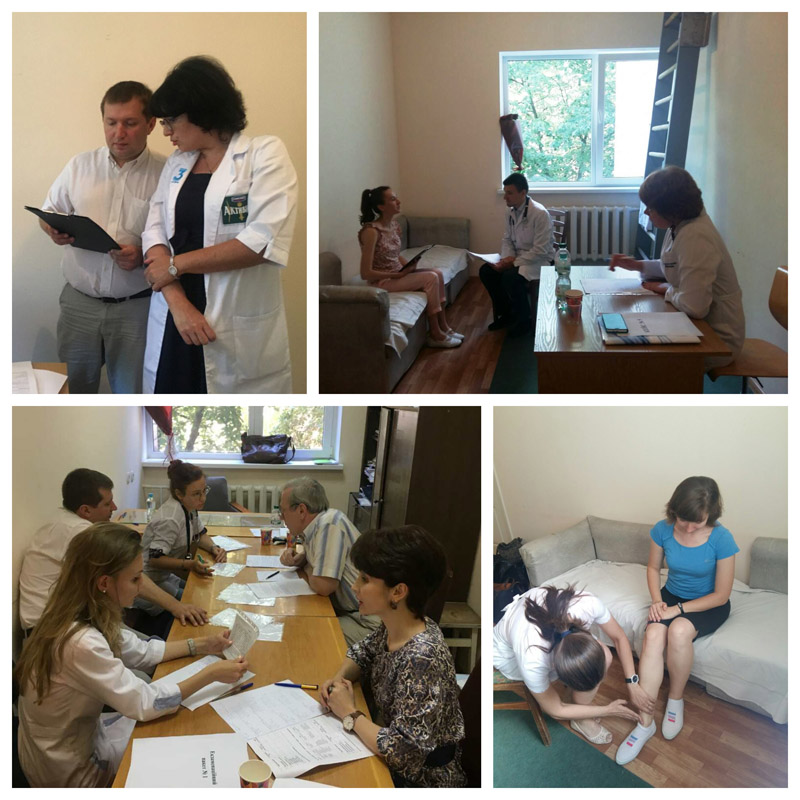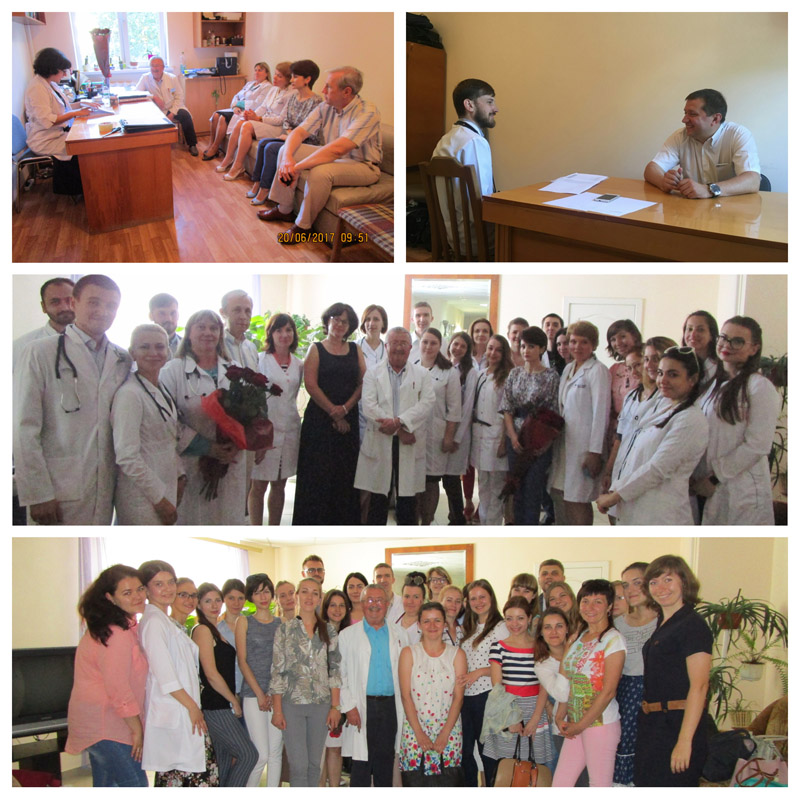Department of therapy, infectious disease and dermatology of postgraduate education
Training and methodological work
A responsible employee is Artem Valeriyovych Panin, MD, PhD, Assistant Professor.
On June 20 and 22, 2017, we conducted the pilot projects of the OSCE-3 (Objective Structured Clinical Examination) exams at our Department. Seventeen medical interns of the second year of study of the Internal Medicine speciality and 15 medical interns of the General Practice – Family Medicine speciality took part in these projects.
The main goal of these projects was to test the knowledge and competence of graduates. For this purpose, three stations were formed: emergency care, working with a standardized patient in specialty of internal diseases, and a case study on infectious diseases. A standardized patients role was performed by postgraduate students, clinical residents, senior laboratory assistants of the Department and participants of the scientific community
An assessment scale for each skill was developed. At each station, scores were set for a certain number of criteria from 3 to 0. The maximum number of points was 48.
Examiners and medical interns noted the high quality of the pilot project preparation, the considerable practical orientation of the tasks, and the need for a broad introduction of exams in the proposed form.


The pictures show different years of state certification at the Department of Therapy, Infectious Diseases and Dermatovenereology Postgraduate Education
The Department of Therapy, Infectious Diseases and Dermatovenerology of Postgraduate Education have six clinical bases plus the “Olymed” Gastroenterology Center, the “FxMed” Family and Functional Medicine Clinic and the “Super Likar” Medical Center, where modern educational, diagnostic and therapeutic work is carried out.
The medical interns of the Department have a unique opportunity to see all the modern possibilities of laboratory and instrumental diagnostics of gastroenterological, cardiological, rheumatological, nephrological, hematological, endocrinological and infectious diseases. Particular attention is paid to practical work at clinical bases, due to which the internship becomes not just another stage of confirmation of a diploma, but a real practical activity based on the principles of evidence, gradualness, the validity of decision making and rotation of interns among the Department’s clinical bases, for the future qualified specialist.
We pay much attention to methodological work and teaching; the Department has many methodological developments of its own, examples of ECG, results of laboratory research. Medical interns have the possibility of mastering various theoretical and practical skills in the complex and incredibly exciting profession of a physician.
To assist interns in preparing for the STEP 3 test (reference value of basic laboratory parameters)





